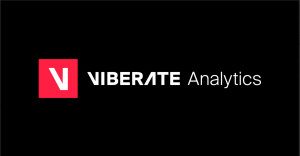How Secure Is Your Online Presence?

In the modern world, you live your life on the internet. Social media, banking information, bill payments, personal or professional blogs, and more are all online—which means people are always watching. Your online reputation is today’s social currency. It can make or break your career, business, finances, and ability to live your daily life. Your online reputation is not just how people perceive you, either. If your computer is hacked, the hackers can blackmail you or drain your bank accounts. For these reasons, your online presence must be secure.
Do You Have Antivirus and Antimalware Programs Installed?
Your first line of defense to keep your digital life secure is to have antivirus and antimalware software on your computer, tablet, and smartphone. Shady websites and email attachments can have bugs that mine your devices for personal information, track purchases and banking information, and slow down your device’s speed and functionality.
There are a lot of options for antivirus and antimalware programs. These can range in price, and some options do have some free editions. Some of the best options are Norton, McAfee, and Bitdefender. Ensure that you check for reviews and look for programs pushed by reputable sources because some software is pitched as security software, but is actually malware.
How Much Personal Info Do You Have Online?
It is surprisingly easy for your personal information to end up online. Even something as basic as your address can end up on a Google search if the settings aren’t protected. When you are tagged on social media, a friend can give away your location. When you post to social media, the type of device you’re using can be displayed. Such small pieces of information may seem innocuous, but they can be used against you.
If you realize that the personal information available about you is more than you want people to find, it can be overwhelming to figure out how to hide that information. You might have to log into multiple social media accounts, some of them old accounts with passwords you can’t remember. In that case, you might consider using a high-rated professional service to remove your personal info from the internet. A professional service can help navigate everything you need to do easily and with a much quicker timeline.
What Do You Share on Social Media?
Most people tend to think that social media is a safe place to post thoughts and have conversations with friends. Even if you are connected to people you have never met before, you consider them your friends. All of that familiarity can cause you to give away more information than is safe.
Potential scammers can look at your social media posts with pictures of your pets captioned with their names, posts about your favorite places or places you want to visit, and pictures of your family, and use that information to guess your passwords. Gaining access to your social media can also give them access to other accounts. The information gained from social media can also give scammers insight they can use for further hacking into your life or even blackmail material.
You should always consider social media posts from multiple angles. How will potential employers see the post if they find it? Can a scammer use the information to figure out a password? Could a stalker use the information to get your location? Digital safety can also mean physical safety.
How’s Your Password Security?
Keeping your password safe can mean a lot for your digital security. A lot of people use simple passwords so they’ll be easier to remember. However, the simpler your password is for you, the easier it is for someone else to guess. You should avoid using pet or family names, and even something like your favorite drink should be avoided unless you can encode it somehow. Also, avoid using the same password for every account.
Using numbers, letters, and special characters in your password in unexpected ways can also help. It is also good practice to change your password for each account at least once a year.
What Cookies Do You Agree To?
Cookies are small pieces of code embedded in most websites, designed to help track user information across the site. The information can be used by businesses to develop their websites and link products together. Cookies are also used to help in advertising. When you browse certain websites, ads for similar products or products related to that information will start showing up in other places online.
Recent legislation requires websites to tell you what information they’re collecting when you access their pages and allow you to change the settings. Sometimes they can be looking at more information than you might want them to have, so it is good to check those settings and turn off the optional cookies to reduce what information is gathered.
Constant Vigilance
The best way to keep yourself safe online is to remember that every piece of information you put out there can be used against you. All you can do is try to minimize what people have. By checking your security settings and keeping things as private as possible, you can help prevent yourself from complications due to personal information available online.
Table of Contents








